
You may download and use this template to complete the Preparation and Planning requirements.
- Provider:
- Utah State Board of Education
- Date Added:
- 07/18/2023

You may download and use this template to complete the Preparation and Planning requirements.

You may download and use this lesson plan template for the Evidence of Preparation and Planning requirement.
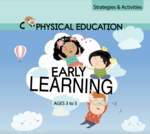
Find strategies and activities that you can use in the classroom that tie directly to the Early learning Preschool core standards.

You may download and use this template to complete the Preparation and Planning requirements.

This microcredential focuses on the foundational components of exercise physiology, including: control of one’s internal environment, exercise metabolism, exercise and the immune system, the structure and control of movement by the nervous and musculoskeletal systems, the circulatory responses to exercise, respiration, temperature regulation, and the physiology of training (effect on VO2 max, performance, and strength.)

This microcredential focuses on eduators' instruction on the foundational components of exercise physiology, including: control of one’s internal environment, exercise metabolism, exercise and the immune system, the structure and control of movement by the nervous and musculoskeletal systems, the circulatory responses to exercise, respiration, temperature regulation, and the physiology of training (effect on VO2 max, performance, and strength.)

This resource is a free, downloadable audio file of short music clips to use for instruction.

This resource is a free, downloadable audio file of short music clips to use for instruction.
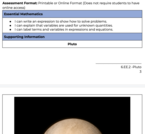
Pluto: Standard 6.EE.2 Write, read, and evaluate expressions in which letters stand for numbers.
This formative assessment exemplar was created by a team of Utah educators to be used as a resource in the classroom. It was reviewed for appropriateness by a Bias and Sensitivity/Special Education team and by state mathematics leaders. While no assessment is perfect, it is intended to be used as a formative tool that enables teachers to obtain evidence of student learning, identify assets and gaps in that learning, and adjust instruction for the two dimensions that are important for mathematical learning experiences (i.e., Standards for Mathematical Practice, Major Work of the Grade).

NCTE and its constituent groups have developed position statements on a variety of education issues vital to the teaching and learning of English language arts.

Contemporary nonfiction for young people plays a crucial role in the reading and writing lives of K–12 students. It is a rich and compelling genre that supports students’ development as critically, visually, and informationally literate 21st-century thinkers and creators. The purpose of this position statement is to propose a paradigm shift for teaching and learning with nonfiction literature in K–12 education.
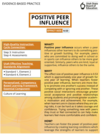
Positive peer influence occurs when a peer influences other learners to do something positive or growth building. For example, peers who are committed to doing well in school or in sports can influence others to be more goal oriented. Similarly, peers who are kind, loyal or supportive, influence others to be the same.

This article discusses ways to integrate wikis and web 2.0 resources into literature circles in order to help students authentically engage in literature discussions and communities.
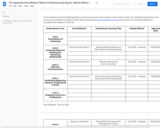
Provides a list of school and district offered professional learning that satisfy Areas 2, 3, and 4 of the Teacher Mentor Endorsement

Utah's Pre-kindergarten Entry and Exit Profile (PEEP) is intended to inform various stakeholders, such as parents, teachers, and leadership, on the academic and essential for entering and exiting pre-kindergarten students. This sit has the manuals, training on administering the PEEP, and reports.

This article provides guidelines for teaching students skills to successfully present in front of the class including addressing stage fright, effective voice, gestures, and posture, and a downloadable and editable grading rubric.
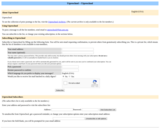
Join our Listserv to keep updated on all preschool professional happenings in Utah!
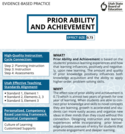
Prior Ability and Achievement is based on the students’ previous learning experiences and how that learning influences, positively and negatively, upon new learning. The amount and quality of prior knowledge positively influences both knowledge acquisition and the ability to apply higher-order, problem solving skills.
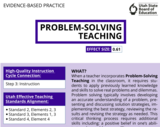
When a teacher incorporates Problem-Solving Teaching in the classroom, it requires students to apply previously learned knowledge and skills to solve real problems and dilemmas. Problem solving typically involves developing an accurate understanding of a problem, presenting and discussing solution strategies, implementing the best strategy, reviewing the results and revising the strategy as needed. This critical thinking process requires additional skills including: a positive belief in one’s ability to solve problems, a willingness to engage in productive struggle demonstrating perseverance and creative problem solving, and the ability to examine one’s actions along the way.

This microcredential represents professional educators' contribution to projects and organizations focused on improving science teaching and learning. These educators understand how to be reflective practitioners who review their instruction and seek constant improvement. Professional educators also identify and participate in ongoing professional learning opportunities to improve classroom instruction practices and deepen their knowledge of the discipline, both in content and pedagogy. This stack of microcredentials fulfills one of the requirements of the pathway for the Secondary Science Endorsement.